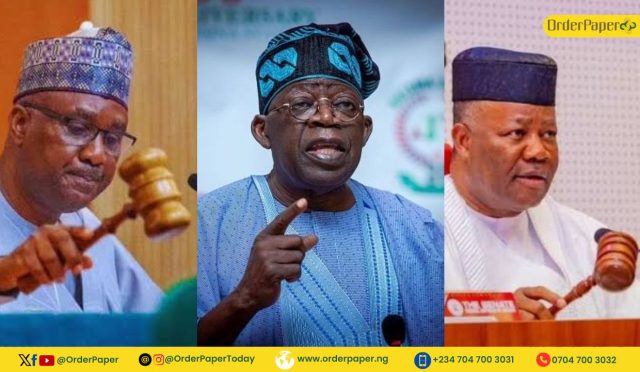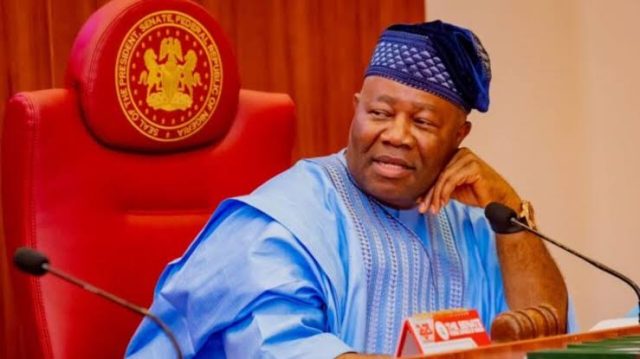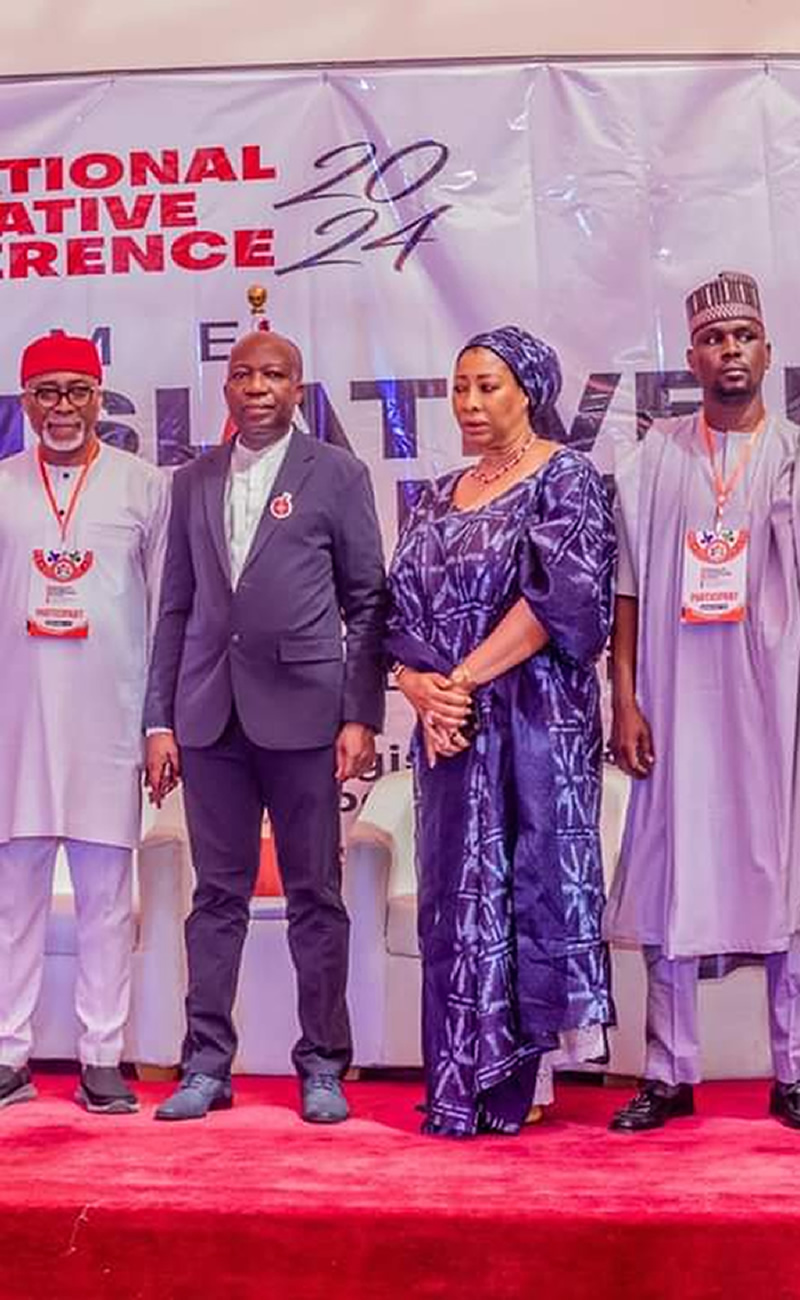In this opinion piece, Olaogun Michael Sunkanmi writes on the first year of the 10th national assembly

Nigeria’s uninterrupted democratic journey since 1999 has no doubt attracted both commendation and condemnation across successive administrations. The commendable aspect of the nation’s journey is hinged on the fact that it has remained as “one” despite dissenting voices while on the other hand, the essence of democracy has not to a significant extent reflected in the lives of the citizens’, hence the nation is bedeviled with social vices at an unimaginable level as a result of poor leadership and “docile” followership.
The 2023 general elections that heralded the administration of President Bola Tinubu, and by extension the 10th National Assembly, is seen as one of the most controversial trajectories that the nation had to face since the beginning of the fourth republic. The first year of the 10th National Assembly has sparked considerable debate, with opinions divided on whether its performance should be applauded or criticized. Among its “achievements” based on public perception is the lavish expenditure on office interiors and the ostentatious lifestyle associated with the halls of political power.
Interestingly, the supporters of the political gladiators occupying the nations “decision making assembly” continue to argue that the assembly has made significant progress in several key areas, particularly in economic reforms and transparency initiatives. They contend that these efforts are laying the groundwork for long-term improvements that will benefit the country as a whole. Sadly, they are not exempted from the economic woes. Noteworthy of the trends in the assembly is the ‘cooperation” that exists despite the multi-party representation at both the Senate and the House of Representatives. This has been hailed as a sign of political maturity and a departure from the partisan gridlock of previous assemblies. However, it is a subject of time.

In the Senate, the manner in which the Senate President makes insensitive jokes from delicate matters as perceived by the his colleagues and the citizens’ is of concern considering the accelerated attention that national matters require. The accelerated passage of the old national anthem, again, served the capacity of a barometer for the assembly’s competence to renovate convention with development. The debate on how to preserve or to update the anthem raised wider questions about the nation’s character and the path forward. The proposition to change the song of praise stimulated a debate on the conflict between the people’s local traditions and their evolution. Should the anthem remain a pure beauty, a relic of the old days, or can it be modified to reflect the progressive spirit of the country to a greater extent?

Moreover, among other laws that that the assembly could choose to introduce is the one that declares death against the sanctity of human life, while ignoring the matter that daily takes away the lives of patriotic Nigerians such as corruption whose effect continue to hold everyone by the jugular. The death penalty for drug traffickers bill — an ethical pot that tried the assembly’s shared mindset. Supporters of the bill assertively argued in favor of a clear stance against the drug exchange while the opposition used the sanctity of human life to call for a harsher approach. The choice remained in a very volatile category, each vote taken scrupulously to moral and moralism.
The South East Development Bill signed into law, dealing with the struggle for local identity, tested the assembly’s capacity for cohesion. Similarly is the North West Development Bill is set up to facilitate the reconstruction of roads, houses, and business premises destroyed by multidimensional crisis, as well as tackle poverty, literacy level, ecological problems, and any other related environmental or development challenges in North-West states. We can only hope that the piece of legislations will achieve desired intentions.
The first year of the tenth assembly was not without its problems. Blending up to the official cycle, the strength of the decision party was seen looming large in every deliberation and decision. Still, there were moments when the soul of bipartisanship seemed to come alive, suggesting something to anticipate that legislators couldn’t let partisan animosity overshadow the unity for the sake of the country even as the tenth assembly happened to be the very first assembly where we have varied and more political affiliations involved.
At the end of the principal year of the tenth assembly, the country remained alert, assured yet reserved. The legislators had fused for a confusing display of concerns; each decision signified the burden of assumptions of a country. Such were their names: as those legislators; but more so, as those who would be sculpting Nigeria’s future.

The citizens continued to watch closely with high expectations as the assembly held within its grasp the ability to shape the future of the nation through legislative actions anchored on electoral promises. Campaign promises, which were once the rallying cries of electoral fervor, now appears to be subjected to the harsh scrutiny of reality. The people demanded tangible results, not mere rhetoric.
The activities and actions in the assembly would determine the course of a country, vicissitudes in pursuit of obligation and soul. The excursion had just begun, and the street in front promised to be as hard as it seemed to be important. In the heart of the tenth assembly, they held the prospect of a better Nigeria, a promise that people will continue to pin on them for many years to come.
Olaogun Michael Sunkanmi, researcher and policy analyst, can be reached via michaelolaogun2014@gmail.com




2 comments
Aladeokomo Babatunde
September 4, 2024 at 9:27 pm
The submissions of Michael are profound, apt and straight to issues. For me, there are more ills in this 10th assembly than plus. Right from the inauguration of the 10th assembly, to the election of its principal officers, to the screening and approval of ministerial nominees, to the passage of the appropriation act, to approval of loans for the executives, to the responses of both chambers to issues of national importance, to speedy passage of bills and poor oversight responsibilities, this 10th assembly has collaborated to further deepen the gap between citizens and their representatives. The assembly can be considered as a rubber stamp, unilateral, conformist assembly.
Assumpta Iwu
September 5, 2024 at 9:05 am
A good job 👍 but there are a lot of errors in this tenth assembly, imagining the fuel increase again that have put many people under pressure especially in terms of transportation which will surely affect the price of Goods and services 💯 ,it has started already